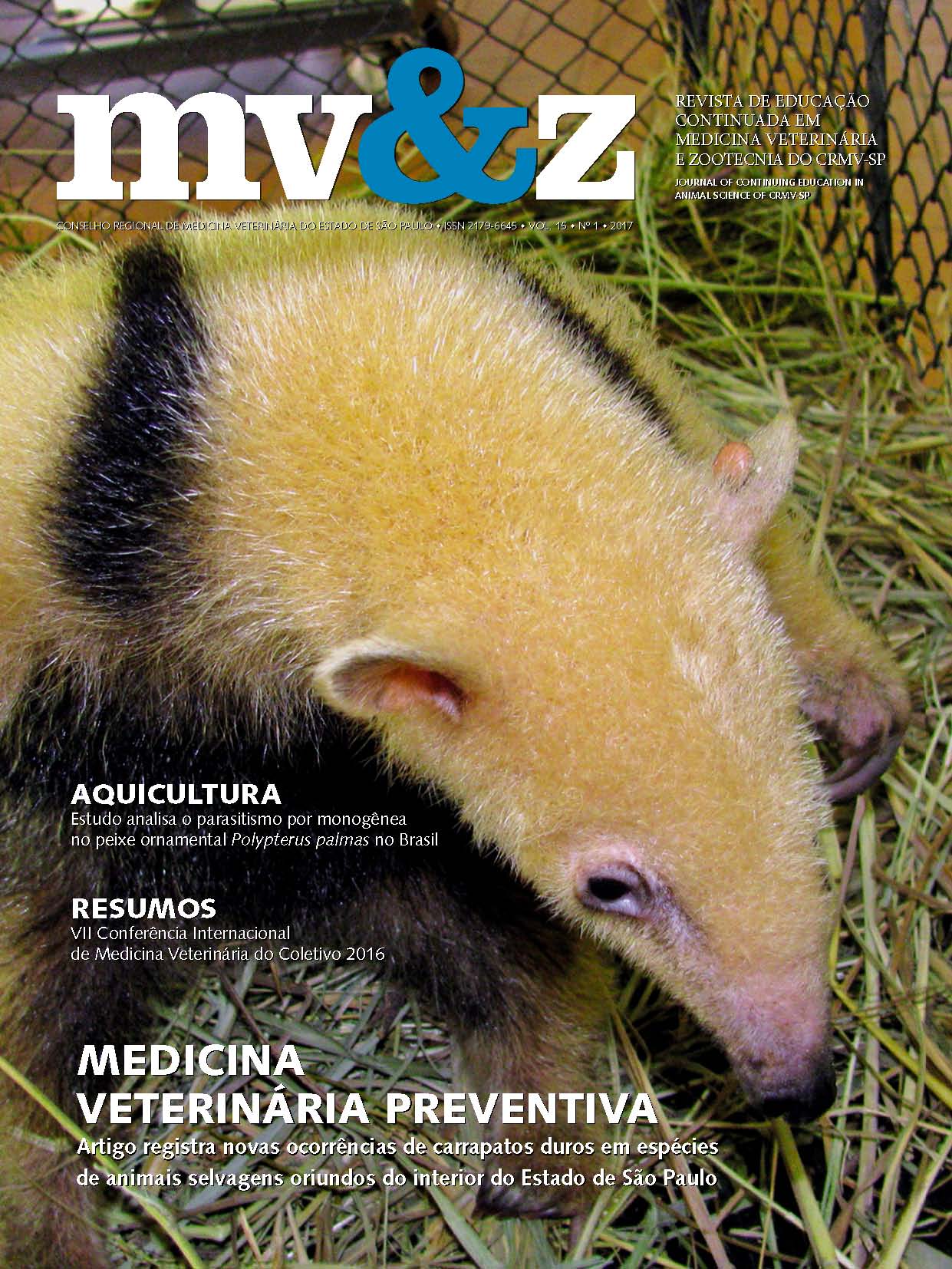Relato de caso de parasitismo por Monogênea no peixe ornamental Polypterus palmas no Brasil
Conteúdo do artigo principal
Resumo
O mercado de peixes ornamentais agrega espécies numerosas de diversos lugares do mundo. A translocação de peixes ornamentais pode trazer consigo agentes patogênicos que representam risco para regiões indenes. O parasita Gyrodactylus, platelminto da classe Monogênea, apresenta como característica a rápida multiplicação. Espécies de Polypterus palmas adquiridos de uma quarentena credenciada para importação e mantidos em uma bateria de aquários em estabelecimento comercial varejista do Brasil apresentaram sinais de perda de muco e parasitas espalhados pelo corpo e globo ocular, perceptíveis a olho nu. Os animais foram removidos para aquários-hospital e tratados com Praziquantel, e os parasitas foram observados em microscópio ótico comum. Após análise microscópica, verificou-se tratar de Monogênea, sugestivo de Gyrodactylus spp. A bateria de aquários foi imediatamente tratada com Triclorfon em uma única dose como medida preventiva, o que se mostrou tóxico para algumas espécies de peixes. Estudos envolvendo condições sanitárias dos peixes ornamentais comercializados no Brasil devem ser desenvolvidos para elucidar a dinâmica de algumas doenças em diferentes espécies. A geração de novos estudos e a atuação de profissionais capacitados implantando sistemas de autocontrole sanitário é fundamental para a redução do risco da disseminação de agentes e para contribuir de forma significativa para a promoção da saúde e do bem-estar de peixes ornamentais.
Detalhes do artigo
Seção
1. Autores mantém os direitos autorais e concedem à revista o direito de primeira publicação, com o trabalho licenciado sob a Creative Commons Atribuição-NãoComercial-SemDerivações 4.0 Internacional
2. Autores têm autorização para assumir contratos adicionais separadamente, para distribuição não-exclusica da versão do trabalho publicada nesta revista (ex.: publicar em repositório institucional ou como capítulo de livro), com reconhecimento de autoria e publicação inicial nesta revista.
3. Autores têm permissão e são estimulados a publicar e distribuir seu trabalho online (ex.: em repositórios instituicionais ou na sua página pessoal) a qualquer ponto antes ou durante o processo editorial, já que isso pode gerar alterações produtivas, bem como aumentar o impacto e a citação do trabalho publicado (Veja O Efeito do Acesso Livre);
